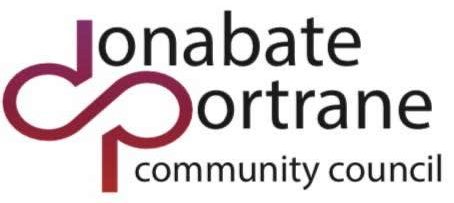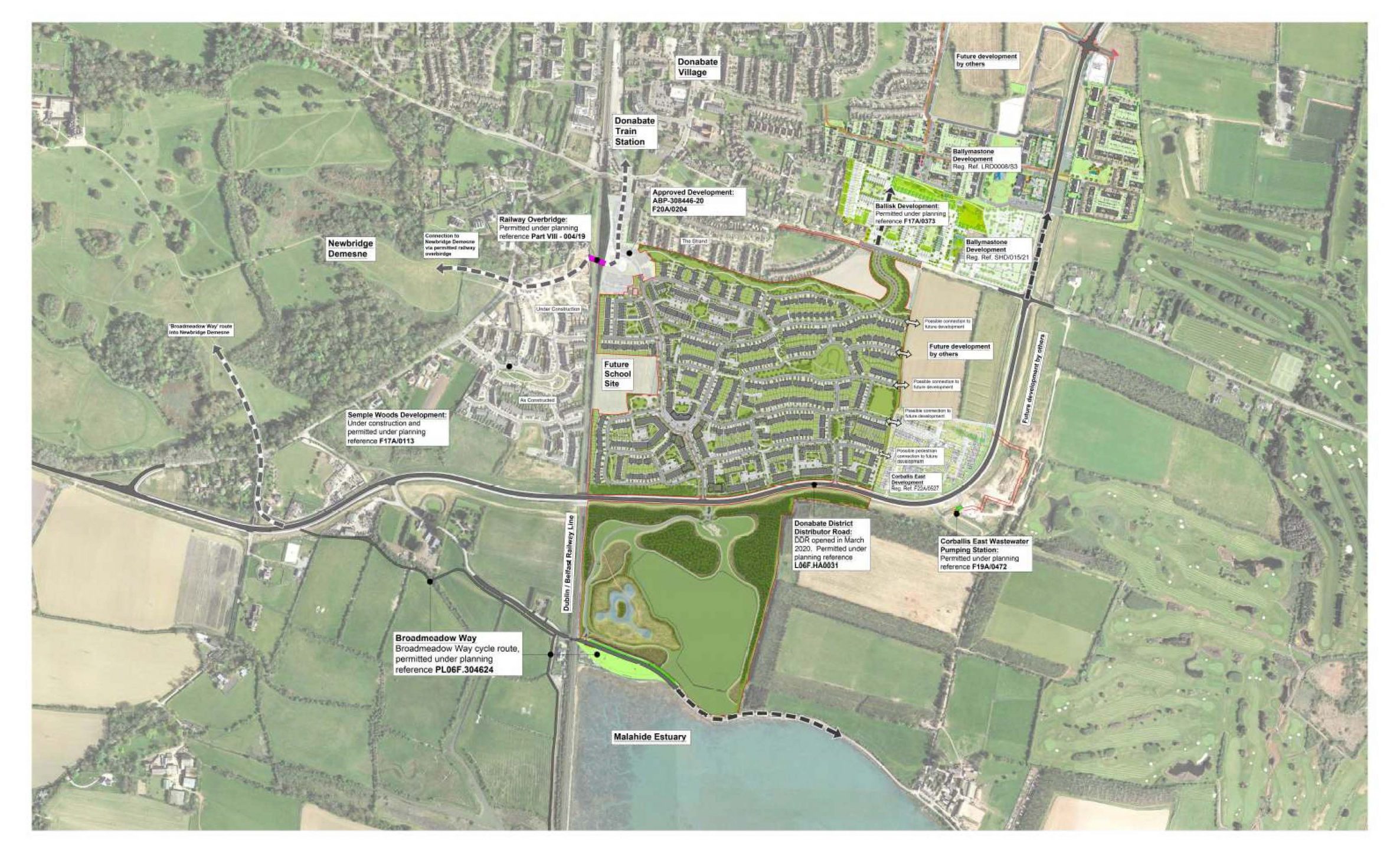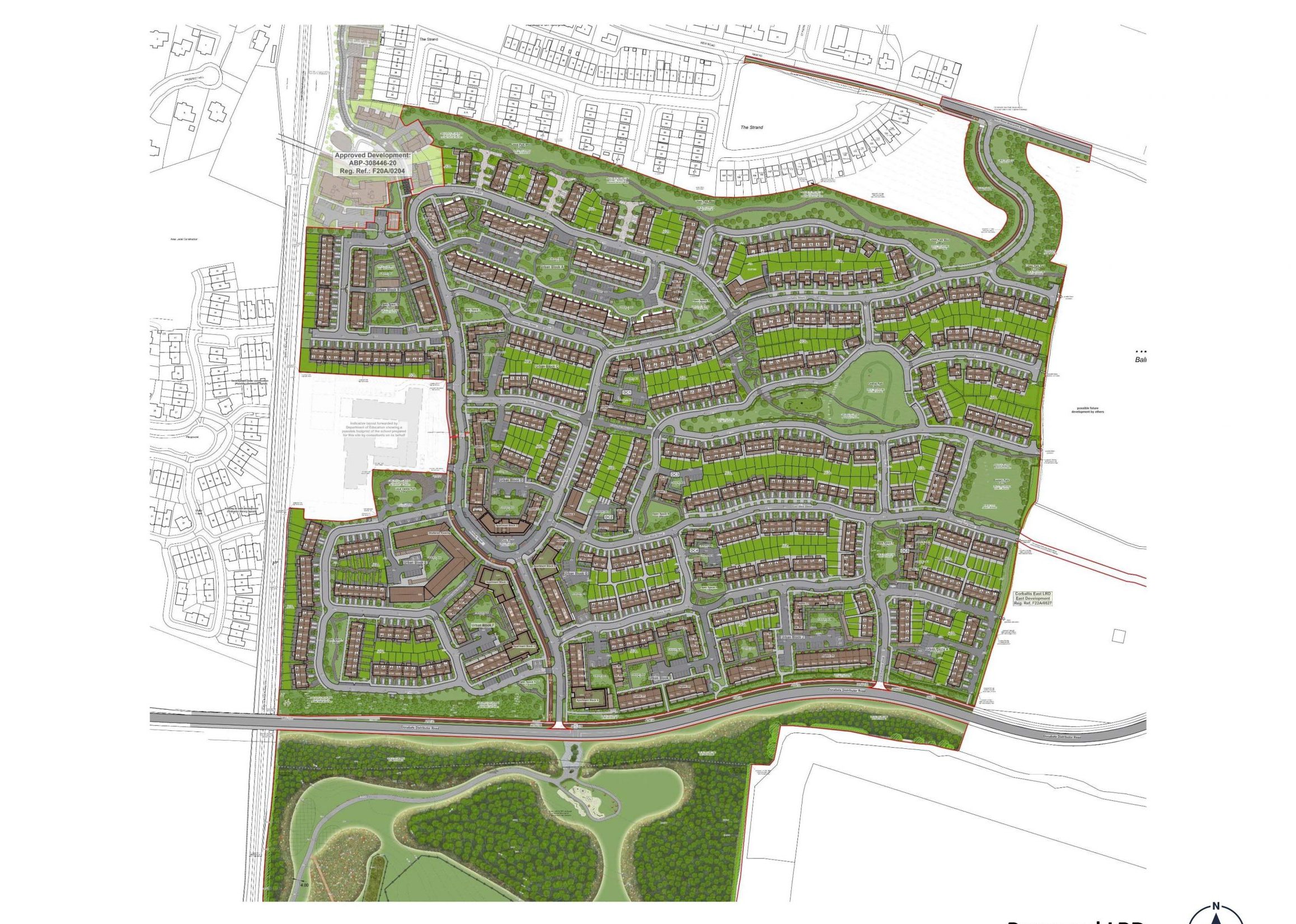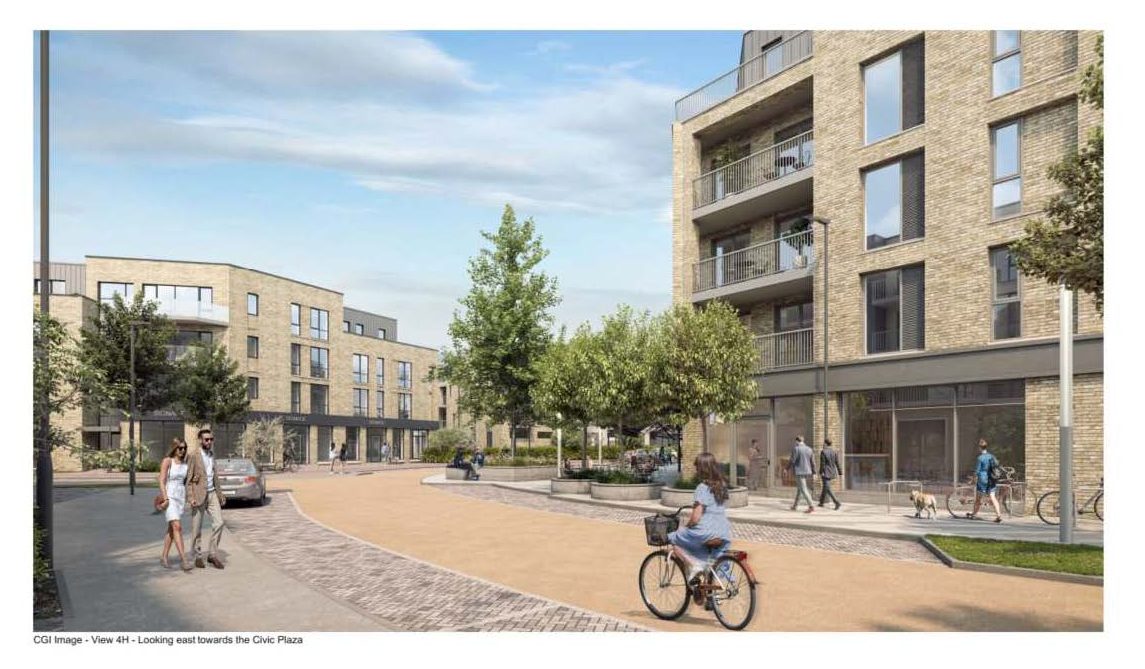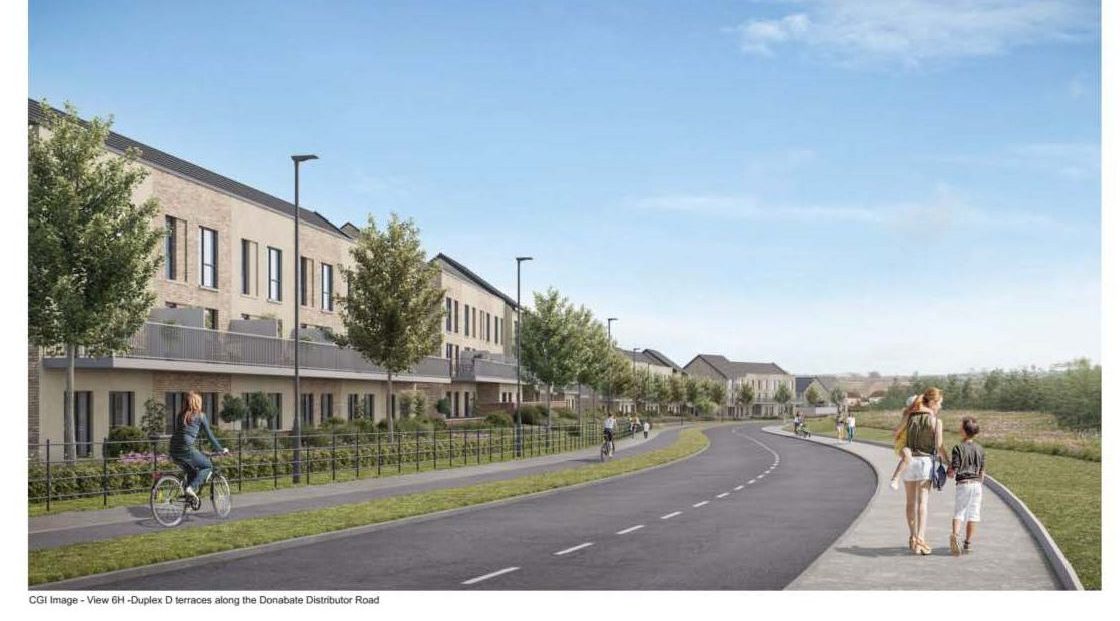WHAT IS THE OVERALL SITUATION?
The proposed “Corballis East” development (landowner Canon Kirk/Aledo) is a housing development on the lands behind The Strand and bordered by the Donabate Distributor Road (DDR).
There is currently planning permission granted for a high-density scheme (Corballis East SHD (Strategic Housing Development)) that includes a lot of multi-story apartments. Following a vote taken at a public meeting held by DPCC in December 2022, DPCC commenced judicial review (JR) proceedings in relation to such permission.
Subsequent to the JR, DPCC met with Aledo to request a decrease in the number of housing units and a greater focus on community-focused development.
In September 2023 Aledo submitted a new planning application (Corballis East LRD (Large Scale Residential Development)) with a lower-density approach, including removal of the majority of the multi-story apartments and reducing the total number of dwellings from 1,365 to 1,020. The application includes a community-use unit and a unit for a medical centre. Within the housing element, they also agreed to provide a circa 50-unit block for sheltered housing.
The development also includes a large nature park (facing unto the Malahide estuary) and walking paths which are intended to interconnect with the proposed Broadmeadow Greenway (which in turn interconnects with Malahide). There is also a site designated for a school on the land.
Details of the Corballis East SHD permission can be viewed here.
Details of the Corballis East LRD ongoing planning application can be viewed here.
Aledo also owns the lands surrounding Smyths Pub, and the old Post Office directly across the road from the Pub. They are in advanced negotiations to purchase Smyths Pub, with a view to refurbishing the pub and redeveloping the area around the pub. The redevelopment will have a focus on retail units including two food and beverage units within the two existing stone buildings adjacent to the street frontage and to the left of the pub.
WHAT IS THE CURRENT STATUS?
Aledo wish to make an agreement with the community under which DPCC will drop their opposition to the development of the Corballis East lands, in return for a commitment that Aledo will only build the lower-density housing on those lands.
As part of the agreement, DPCC has negotiated with Aledo to secure the following community-centric initiatives:
-
They agreed to refurbish the existing stone buildings adjacent to Smyths pub, for food and beverage use. As part of this, they have provided a firm commitment to commence the construction of this element within 18 months of planning permission being secured.
-
Improved traffic flow via the construction of an adjoining road between the main development on Corballis East and the Smyths Pub development, with the intent of precluding residential traffic coming from the new residential development exiting onto the main street in the village.
-
A community fund of €10,000 per year for ten years, for use in community events and initiatives.
-
The lease of a retail unit (at zero rent) for a period of 10 years intended to be used for community use. Instead of taking a lease of such a unit, the community has an option to convert this into a one-off payment of €150,000 for a community project.
WHAT IS THE GENERAL VIEW OF THE CURRENT OFFER?
The community gain package offered has been heavily negotiated over the past 6 months by DPCC and its lawyers. The offer and the associated legal terms are considered to be robust and unlikely to be improved by further negotiations.
Significant legal protections are to be put in place for the benefit of DPCC and the community to ensure that the Agreement is implemented in full.
WHAT RISKS DOES DEVELOPMENT POSES TO THE COMMUNITY?
There may be disruption during construction. However the presence of the DDR means that minimal construction traffic relating to the works should transit via the village.
However, it is recognised that this development will result in an increase in the population in our community, which in turn will put pressure on our existing infrastructure. It should be noted that the development will be carried out in phases over a 10 year period. We share the views of many that we should, as a collective, lobby Fingal County Council and other public bodies to provide increased social amenities and improved public transport.
DPCC lawyers have also advised that there are no legal grounds for objecting to the Corballis LRD planning application on the basis of the lack of current social amenities or the current position relating to public transport or the potential strain on the electricity supply coming into the peninsula.
IS THERE AN OPPORTUNITY TO PREVENT ANY DEVELOPMENT ON THIS LAND?
The land is zoned for residential development under the local area plan and it is inevitable that the land will be developed for this purpose. The only question is whether the development is in the near or medium term.
As we have seen on this land already, even where our community appeals or commences JR proceedings, a new or replacement planning application on this land will be inevitable.
In our view, the proposed Agreement provides for considerable community gain which may not be available under an alternative future proposal for development on the land.
WHAT HAPPENS IF THIS OFFER IS REJECTED AND DPCC CONTINUES WITH EXISTING JR?
Given the direction of Government policy towards housing, and the proximity of the land to the village and to public transport, DPCC is strongly of the opinion that future planning applications/permissions for this land are very likely to contain higher densities than the current planning application. Planning policy will also reduce the carparking allocation for new dwellings. In other words, there is a material risk that a future planning permission for this land may result in a worse development than that currently proposed by Aledo.
Given that the land is currently mortgaged, there is a material risk that the land could be sold, if it is not developed in the near term. If the land is sold to a State entity there is a real risk that the tenure mix will move away from private-orientated to other types of tenure.
DPCC therefore feels that this agreement allows for the community to ‘lock in’ an acceptable typology and density of housing on these lands, which will provide a benchmark against which future large-scale housing developments in the area should be assessed.
